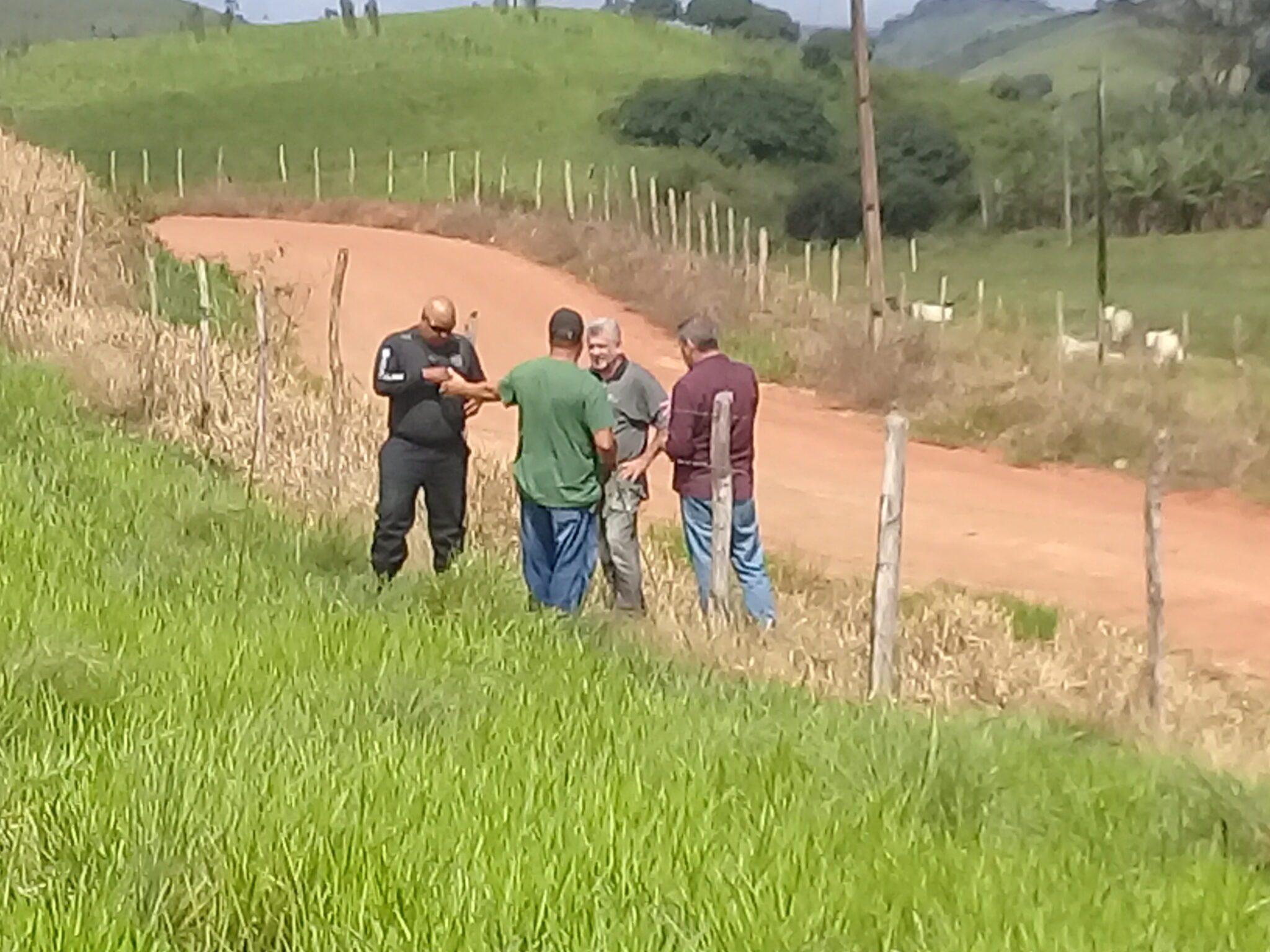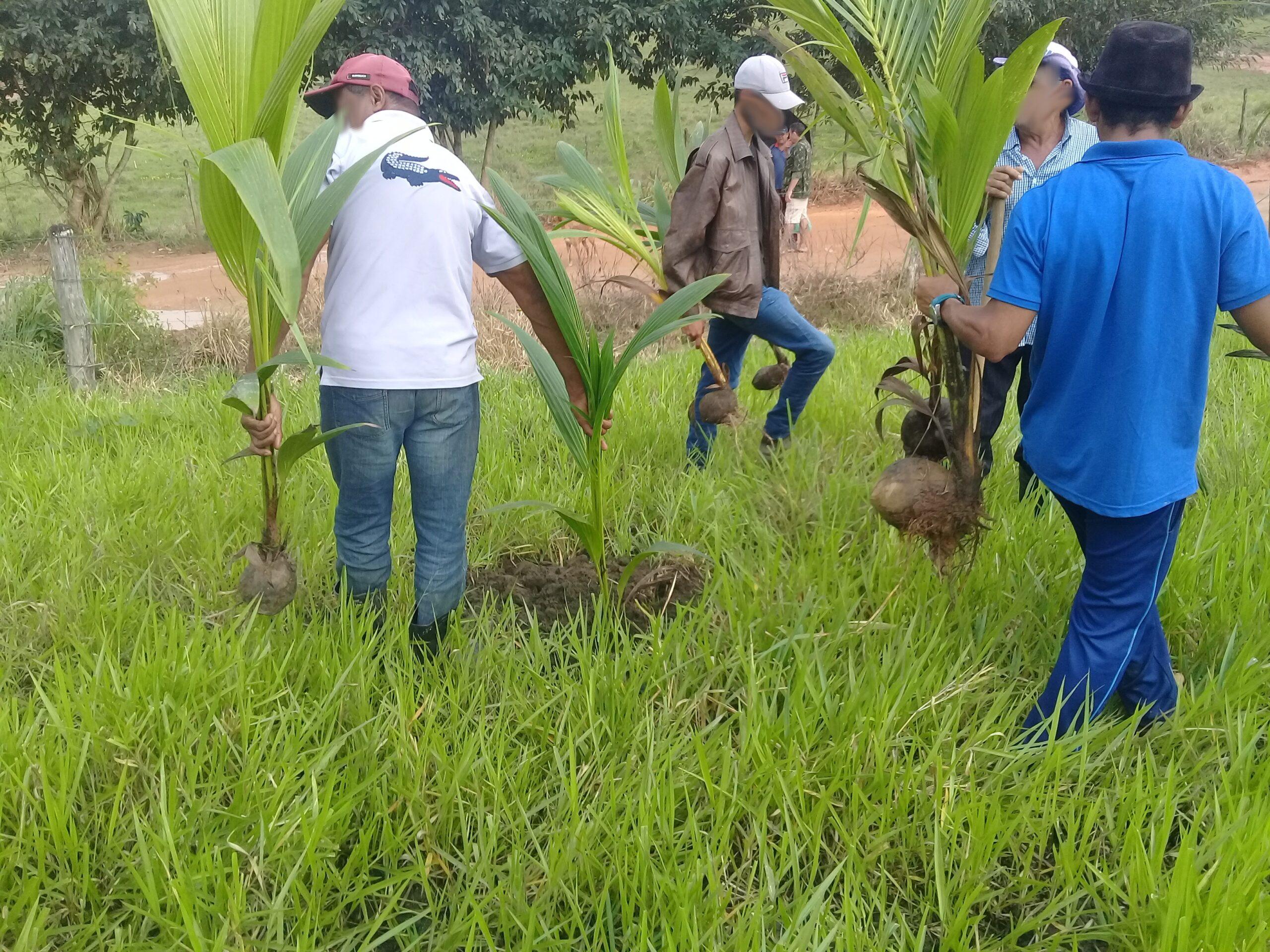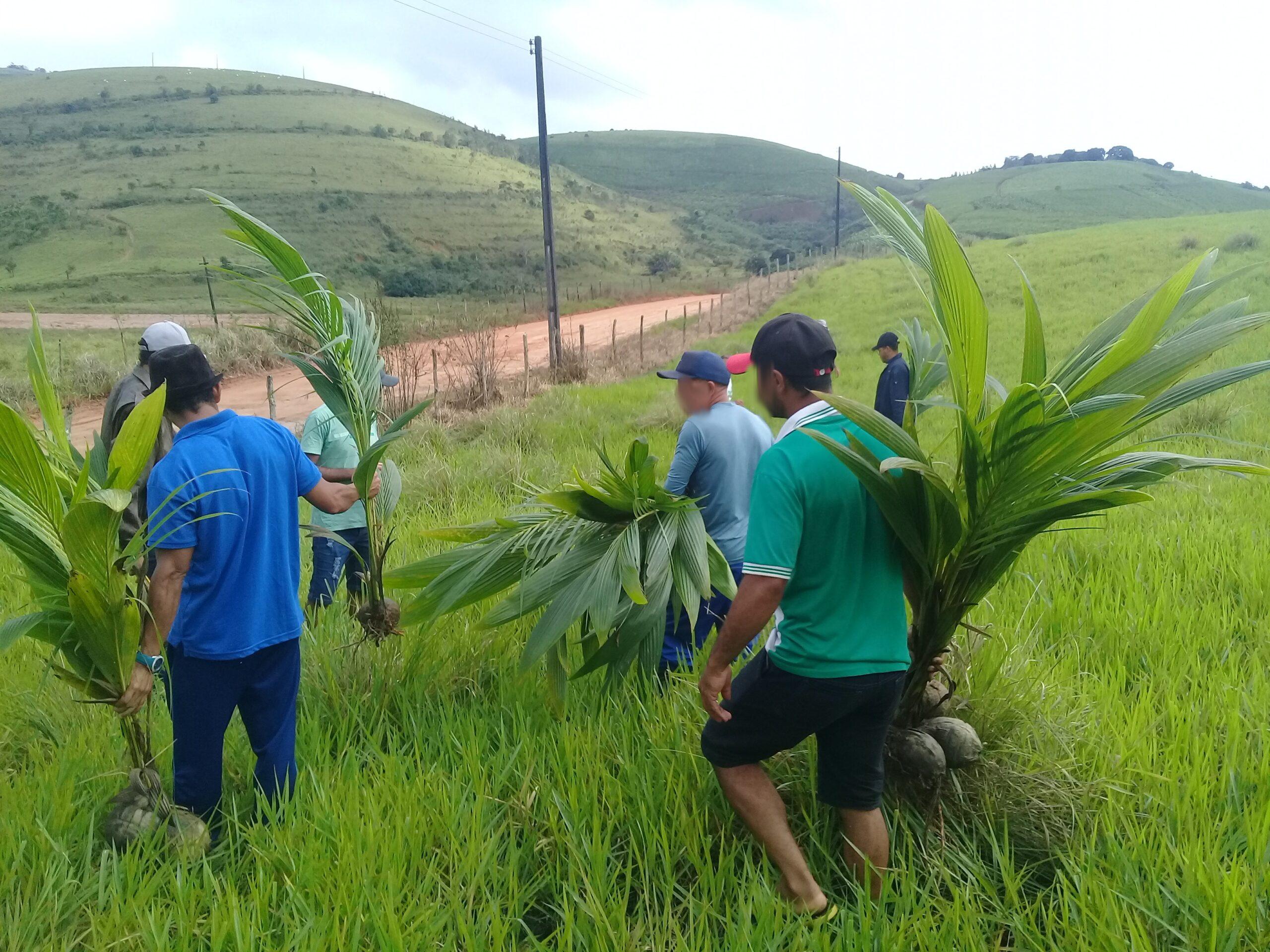25. August:
There is news in the case of the four arrested activists of the Manoel Ribeiro camp. The activists Estefane, Ricardo, Ezequiel and Luiz Carlos were summoned again for a hearing on August 25. The four farmers and activists have faced constant repression since their arrest on May 14, 2021, as part of a process against them based on false evidence and the political will to criminalize the struggle for land that is gaining momentum in Brazil.
In 2021, the activists spent seven months in prison and had to pay fines, and their current release includes a series of restrictive conditions. All this because in 2021 they participated in the occupation of the historic Manoel Ribeiro camp. An occupation that aimed to liberate the last part of the former Santa Elina farm from the big landowners. At that time, this camp in the revolutionary area, which is administered by the League of Poor Peasants, was besieged and threatened with massacre by the local landowners and military police, after which an international campaign of solidarity with the struggling peasant masses and the League of Poor Peasants unfolded.
Now the four defendants are to be interrogated once again. And this again under false suspicions and evidence, which the police deposited in their private possession during the arrest. Thus, the defendants were allegedly in possession of radio equipment, a revolver and shotgun shells. All this theater serves to justify a series of attacks by the police in this context, which at the time even went so far as to run over a farmer with a vehicle.
The League of Poor Peasants, as well as other democratic organizations such as the Brazilian Center for Solidarity with Peoples and the Association of People's Advocates, denounce this unjustified and cynical trial, which is based exclusively on the testimony of the police officers involved and their fictitious "evidence".
In addition, the solidarity campaign for the four farmers is supported by a number of progressive, democratic intellectuals and artists, including professors from the University of São Paulo, recognized jurists, and writers and actors.
21-23. August:
In the northeastern state of Pernambucano, in the territory of the city of Jaqueira, on August 21, there were several combative actions by poor peasant families, with the support of the northeastern section of the League of Poor Peasants, defending their land against the landowner Guilherme Maranhão. The landowner Guilherme Maranhão is the owner of the "agribusiness" "Agropecuária Mata Sul S/A", which since 2020, with the help of the Governor of Pernambucano, owns an old land of a mill that went bankrupt, on which five large peasant communities live. These five peasant communities have been in resistance to the eviction from their land against the ruling classes for about 300 years. On the territory of the peasant communities, popularly called "Engenhos", there are in turn many small farms owned by hundreds of old peasant families, based on centuries-old generations of indigenous, Afro-Brazilian and small farmers.
The "agribusiness" " Agropecuária Mata Sul S/A" and its large landowner owner Maranhão are now trying to evict more than 2000 farmers to steal 53 percent of the municipality's territory. In place of the peasant families, a large cattle farm is to be built to supply the largest meat company in northeastern Brazil. One of the destinations of the slaughtered animals is primarily the Chinese market. Once again, this example illustrates how the demand of imperialist states is carried out on the backs of oppressed nations. Especially by the intensified exploitation and displacement of the poor peasants.
Now, on August 21, peasants and residents of Barro Banco and the leaders of their association, in collaboration with the League of Poor Peasants, organized to fight all the eviction plans of the big landowner. At 6 a.m., dozens of farmers gathered and prevented the landowner's cattle from being driven onto the land near their homes. Another group of farmers went to the central part of the area to prevent the construction of a new cattle shed, driving the landowner's employees off their land. The landowner then sent his paramilitary "security chief" to intimidate the masses and tried to lie to them, saying that the construction of the building was authorized by local authorities. Soon, three full vehicles of military police reinforced the side of the big landowner, who tried to intimidate the peasant masses with rifles and heavy weapons.
Subsequently, the military police reported the poor farmers to the local police. The peasants then elected representatives to negotiate with the cops and accompanied them to ensure their safety. The mobilization to and around the police station succeeded getting the mayor of Jaqueira to look at the situation in the area and reject the construction work of the landowner as unlawful, since there was no permit. This was the first victory of the peasants' struggle for their rightful land. Although the "agribusiness" of the landowner Maranhão continued to be listed in the police report as a victim of the peasants' actions, because they committed actions against Maranhão's property, there was no further attack by Maranhão and his paramilitary or police lackeys.

On the contrary, only two days later, around 80 peasant families from the same area reconquered parts of their stolen land with a struggle action of collective Labor. Once again, around 6 a.m., the peasant families gathered. This time, starting from their houses and going further and further, they began to plant the surrounding land that was stolen from them with seedlings of coconut and banana trees, in other words, to work with the soil so that it can feed them and their collective community and not serve the interests of the big landowner and his cattle farm. Within six hours, the peasant families managed to plant and work an area of more than four hectares of land, which is roughly equivalent to the area of five and a half football fields. This time, too, the armed paramilitaries and the police, which were called in, tried to intimidate and drive away the peasant masses in the service of the landowner. The police even used a drone to spy on the peasants. The peasants continued to counter the repression with fighting courage and by singing revolutionary songs. The peasants' fighting morale was even so high that they pitched a tent at lunchtime to eat collectively while denouncing the Latifundium forces with slogans.
 |
 |











